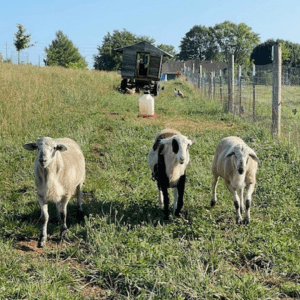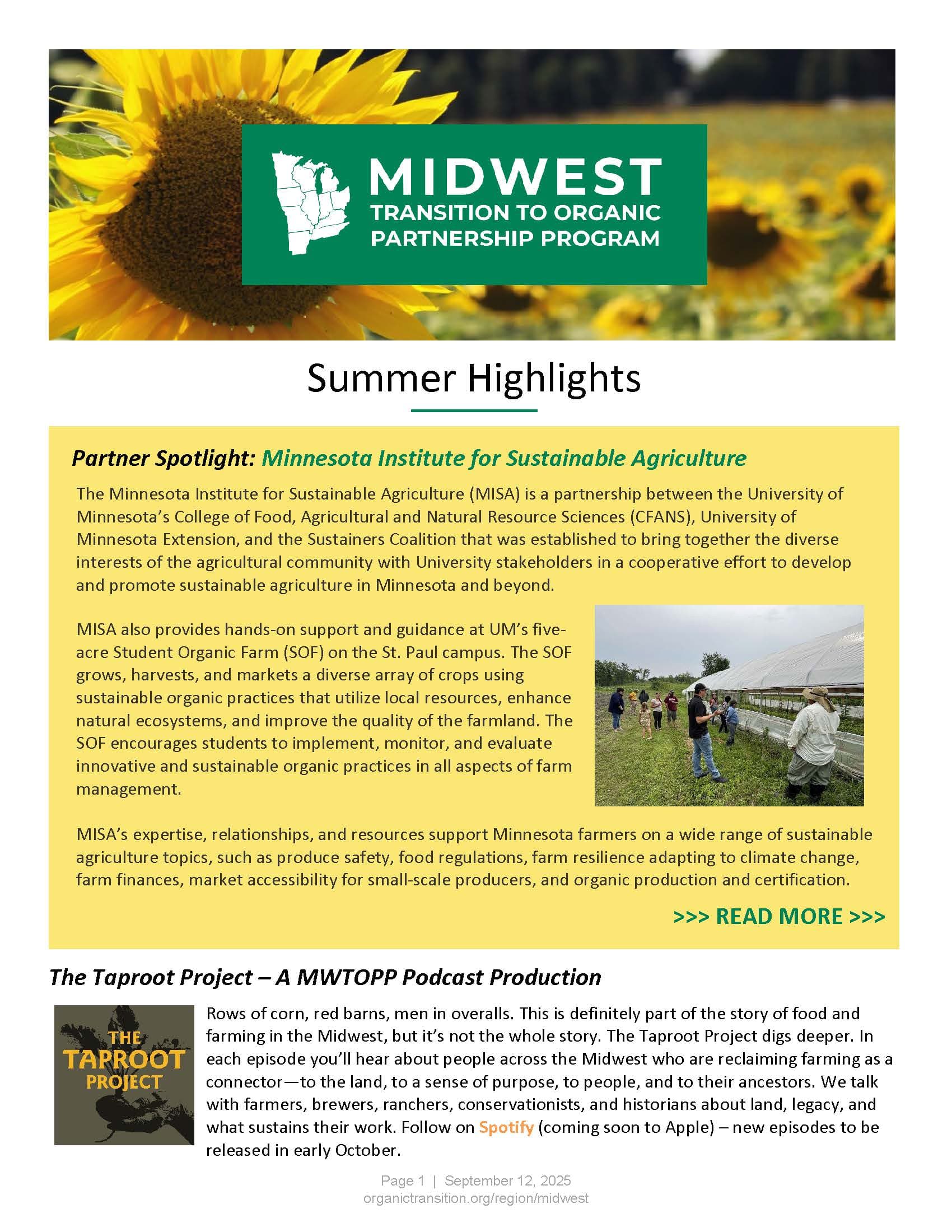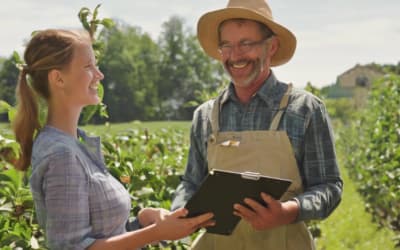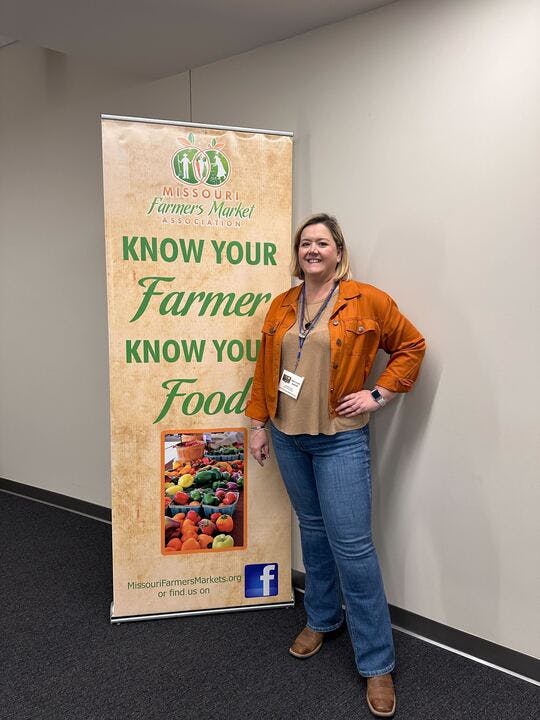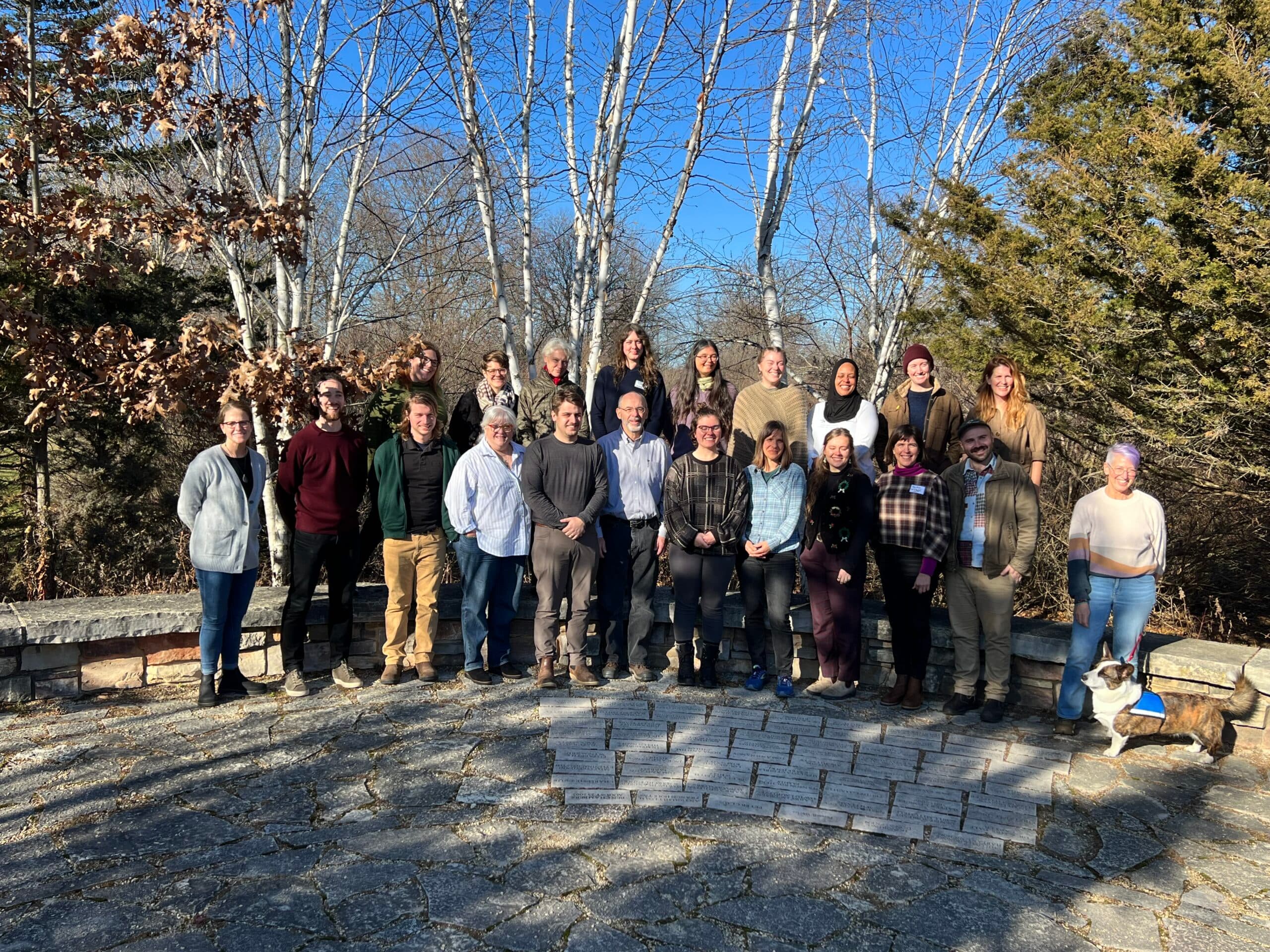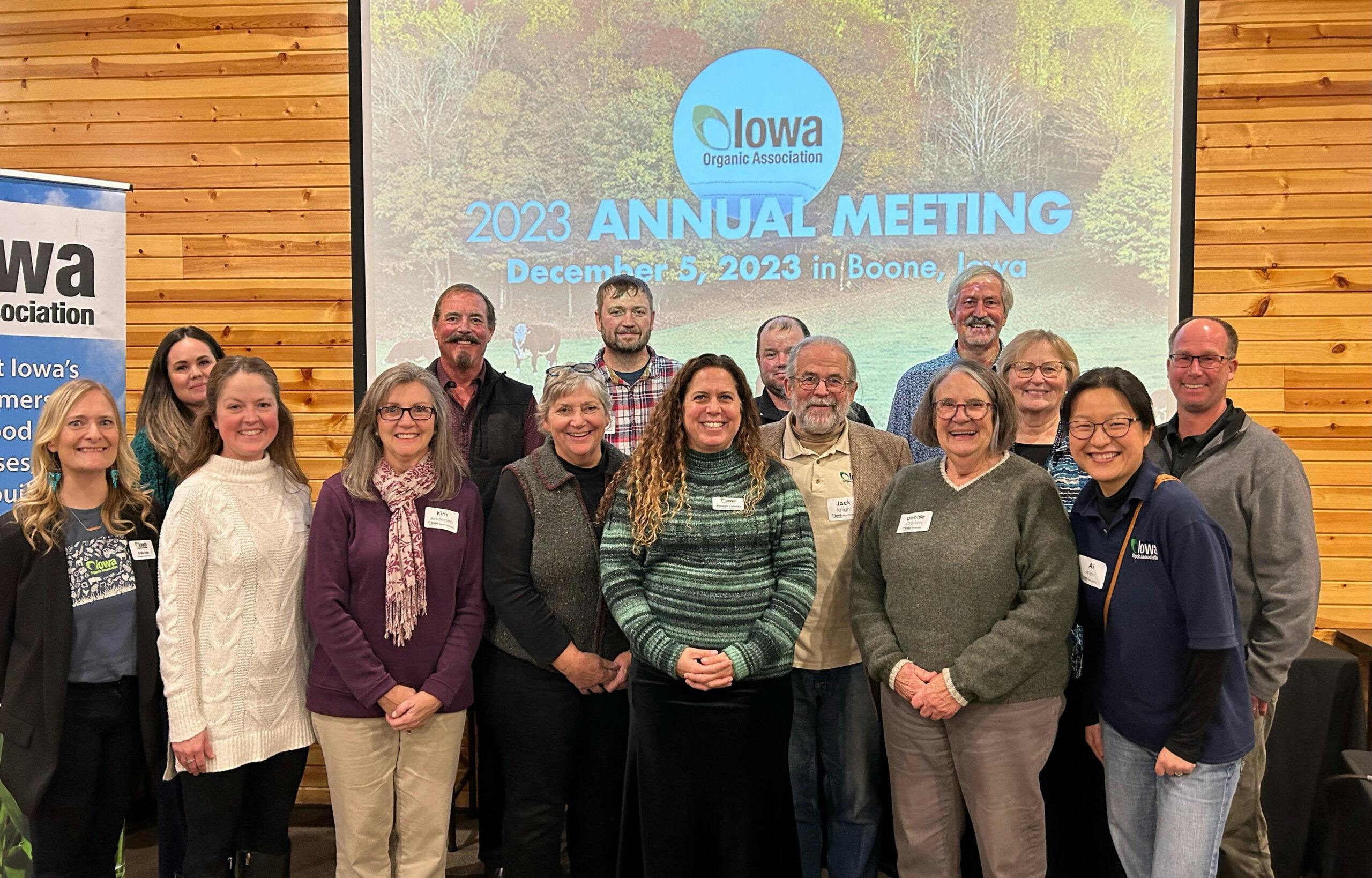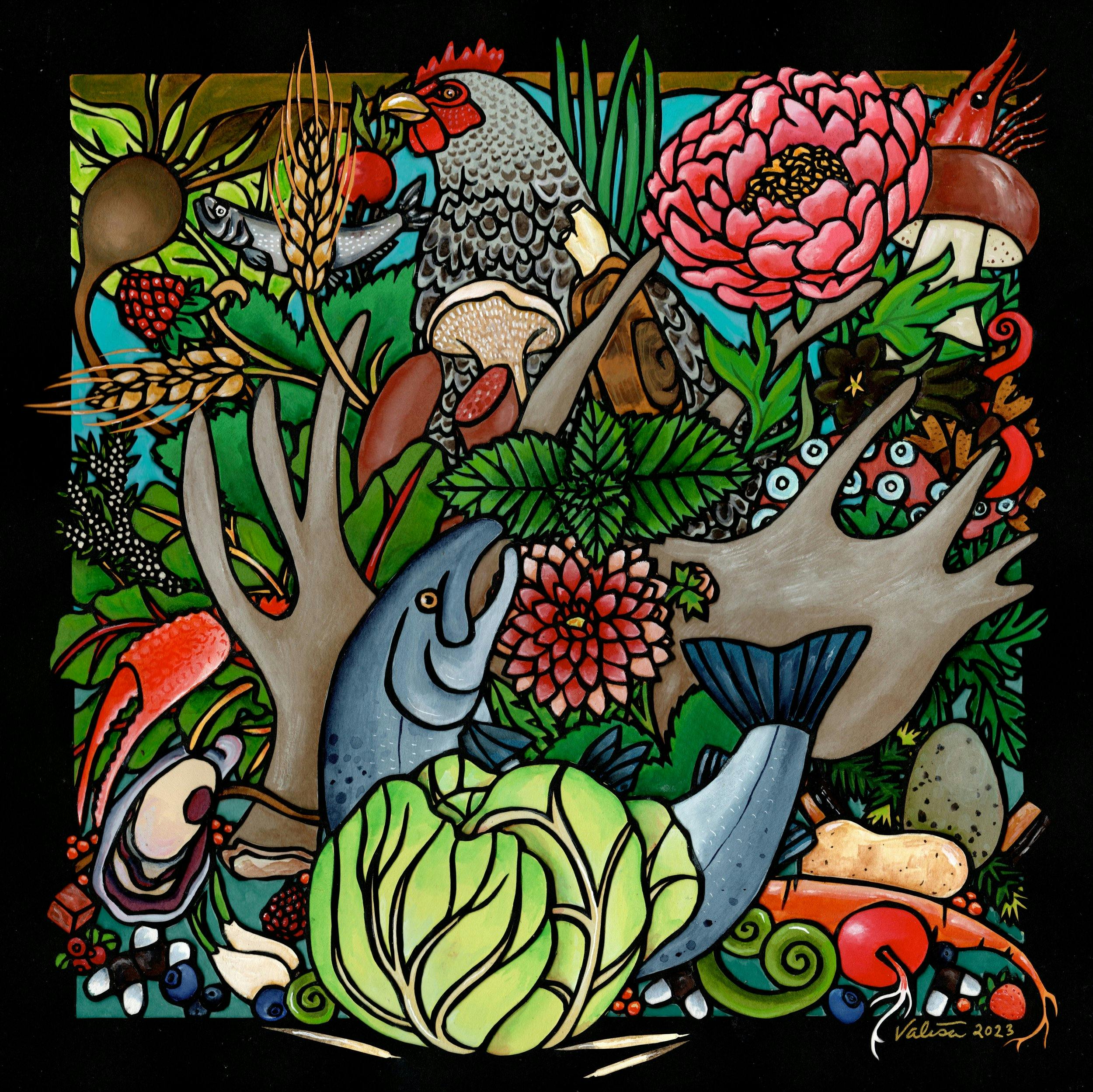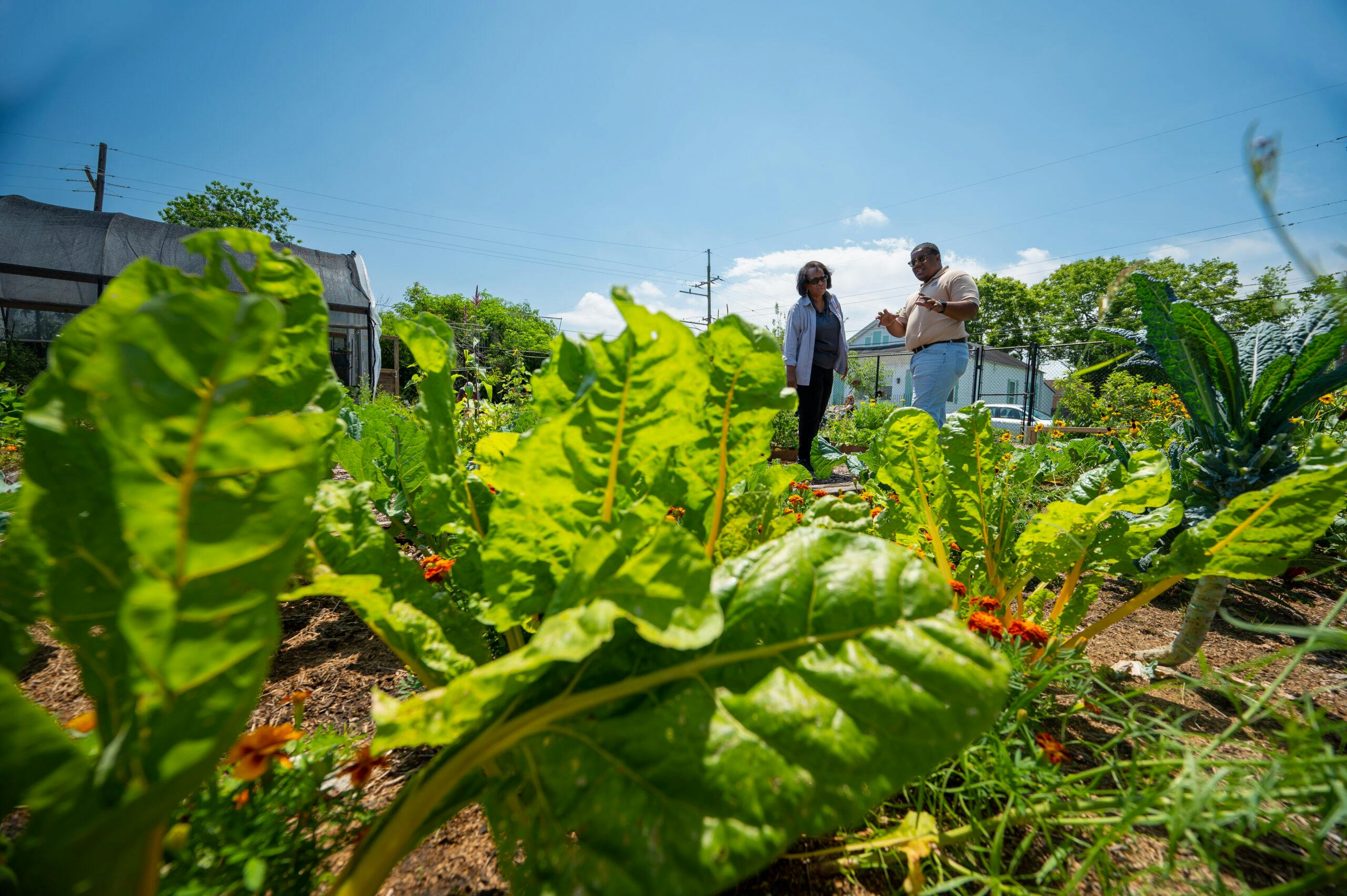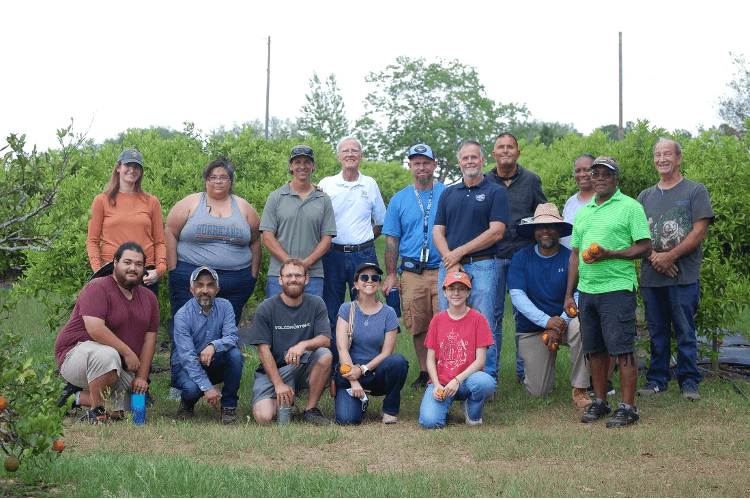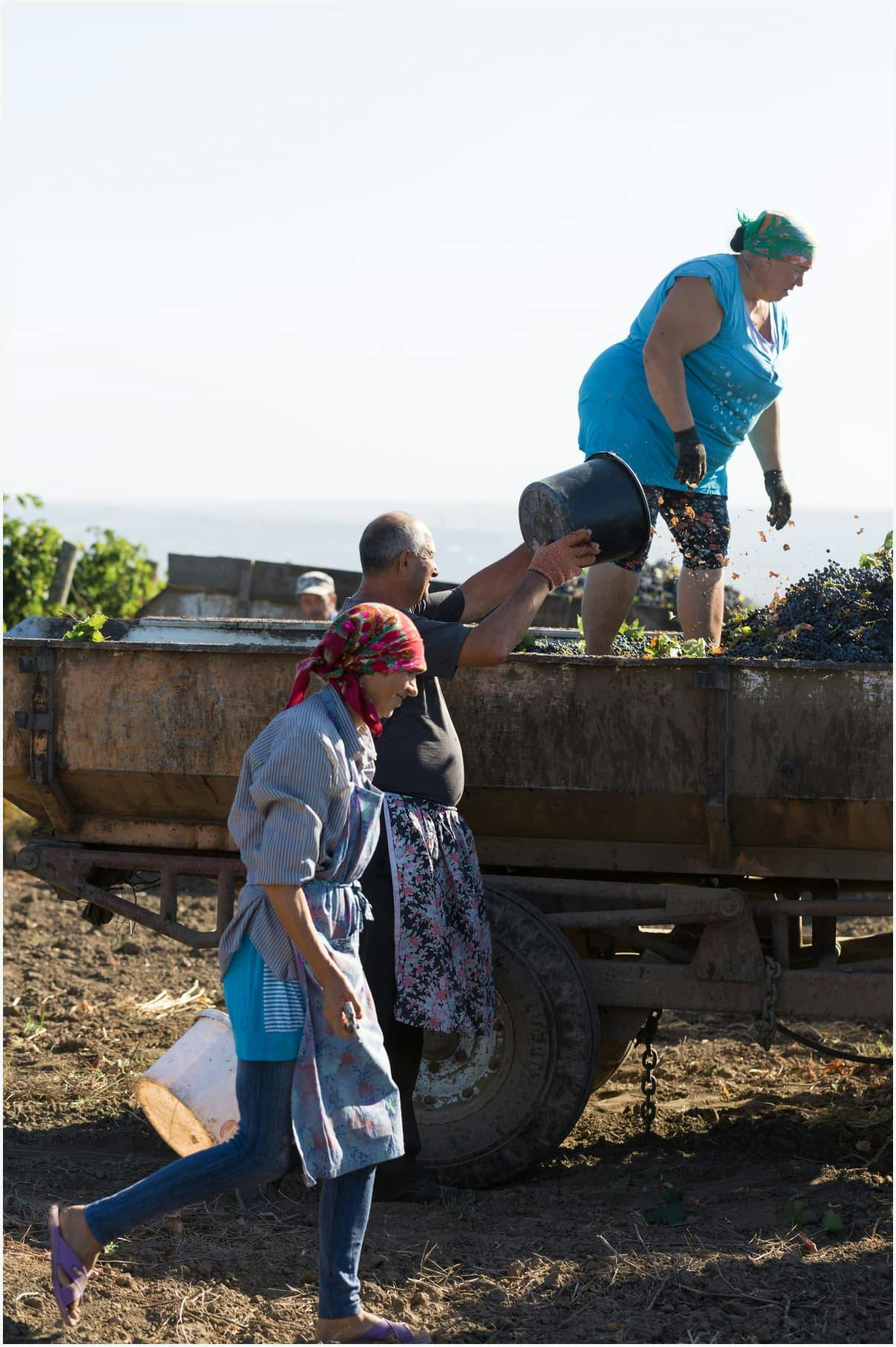
Let’s Grow American Agriculture
The Transition to Organic Partnership Program (TOPP) is a network assembled by the USDA’s National Organic Program to support transitioning and organic producers with mentorship and resources.
Two Years of Progress: How TOPP is Growing Organic from the Ground Up
Since its launch in 2022, the USDA Transition to Organic Partnership Program (TOPP) has been strengthening organic farming communities. This report highlights the first two years of TOPP, showcasing real stories, key partnerships, and insights on how the program supports producers transitioning to organic, boosts local economies, and expands market opportunities.
We are six regions working together nationwide towards a common goal:
to grow the network of organic producers.
With TOPP, producers transitioning to organic will find support through the transition and certification process. Mentorship, workshops, webinars, field days, technical assistance, and other educational events will offer opportunities to learn about organic production, the certification process, market opportunities, and more.
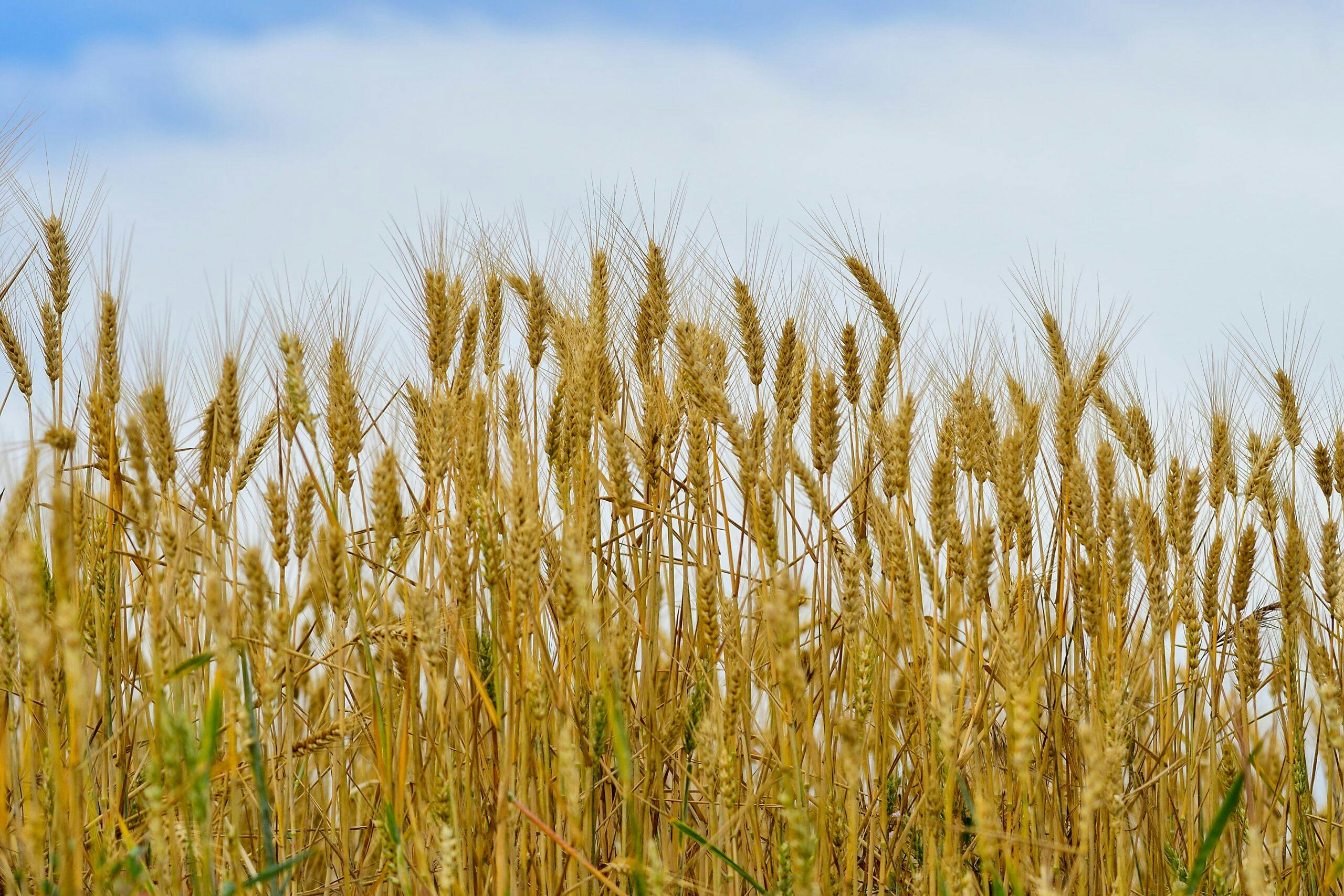
Find your region below to learn more about mentorship, events, and resources.
Join Our Mentorship Program
The TOPP mentorship program builds connections between experienced organic producers and producers transitioning to organic, supports the transition process, and creates a stronger network of organic producers across the United States.
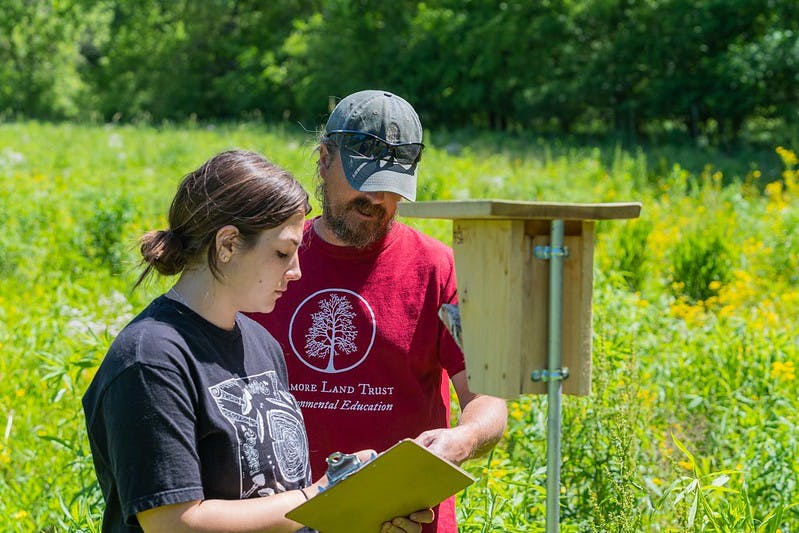
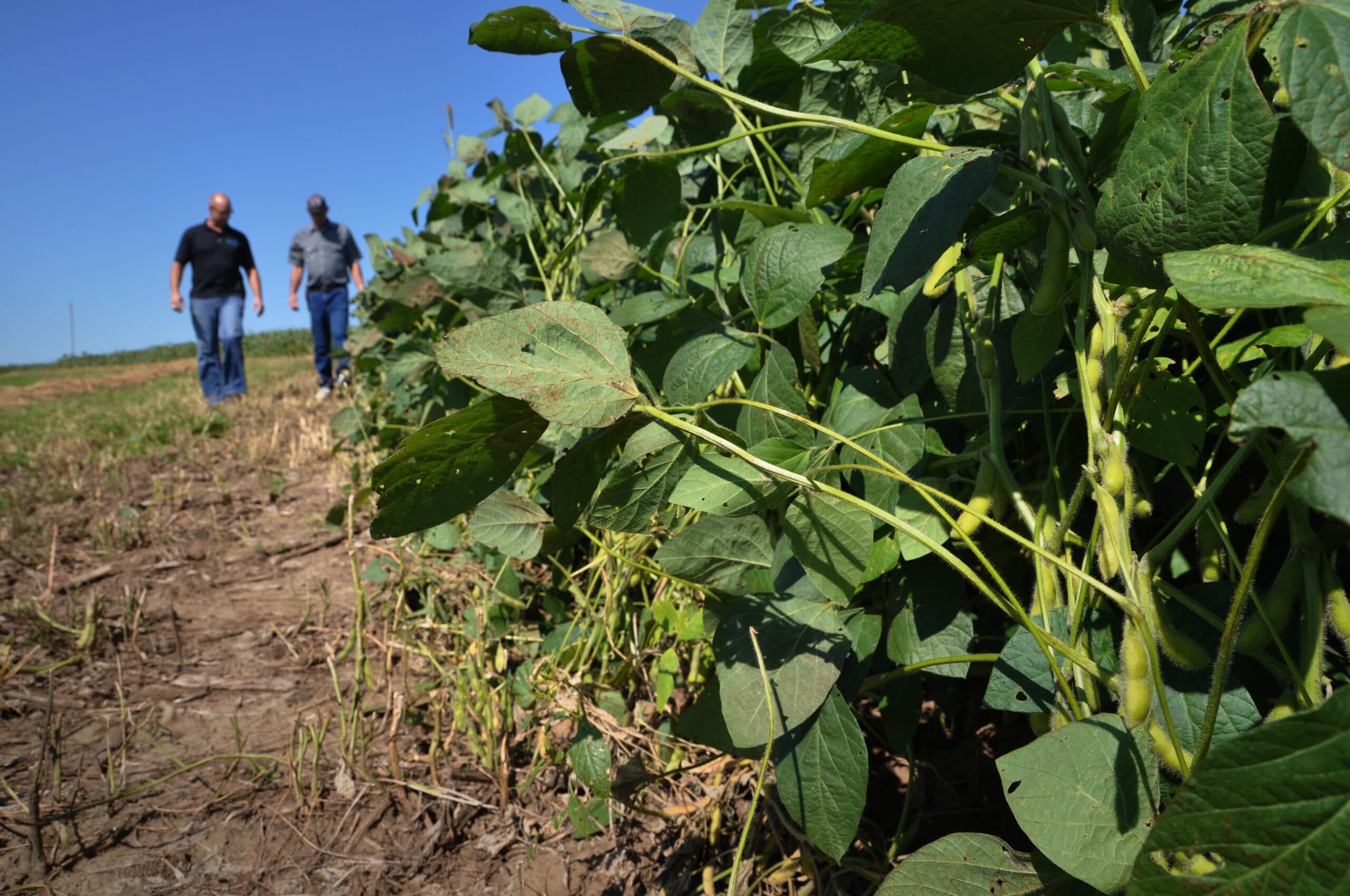
For Mentees
Transitioning producers gain support, guidance, and development through mentorship.
As a transitioning producer you will receive free mentorship from an experienced organic producer. Mentors and transitioning producers will work together to set goals for the mentorship year and will form a strong network of organic producers across the region.
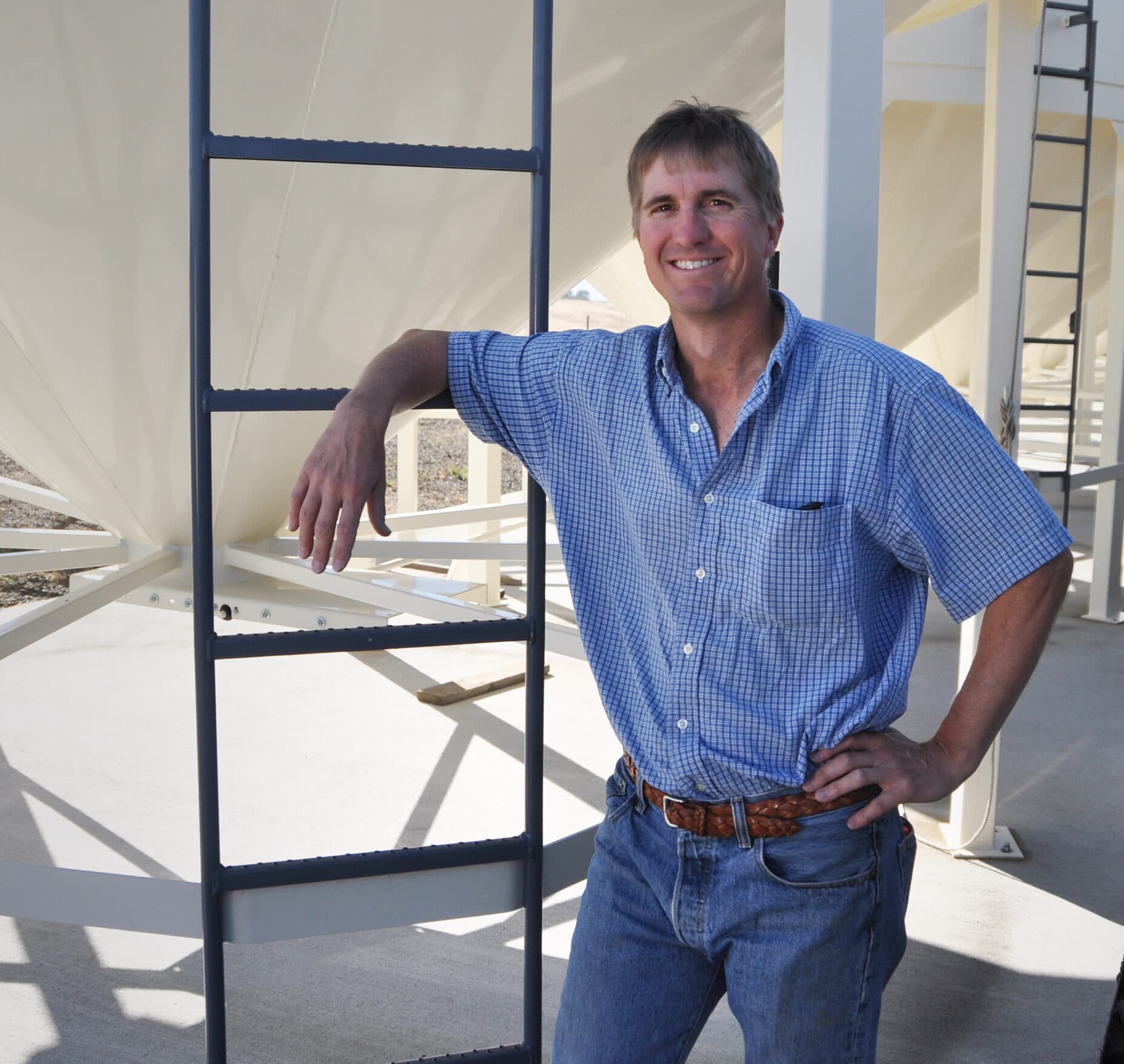
For Mentors
Mentors play a crucial role in helping new organic producers succeed while growing the organic movement.
As a mentor, you will have the opportunity to guide and support producers who are transitioning to organic, providing them with valuable insights, practical advice, and industry best practices. Mentorship training, time, and travel are paid. All crop and livestock producers are welcome to apply!
Upcoming Events
Farmshare Austin
Cedar Creek, TX
Farmer Starter is a five month entry level immersive farmer training program on a working, certified organic, diversified vegetable farm. Combining hands-on field practice with classroom learning and field trips to local farms, Farmer Starter is designed to provide aspiring farmers with the essential skills and training needed to manage a sustainable farming business.
Iowa Organic Association, Iowa Farmers Union
9:00 am - 5:00 pm (CST) | Ames, Iowa
The Iowa Farmers Union State Convention brings members from across Iowa together to celebrate family farming, strengthen our rural communities, and shape the future of agriculture. Attendees will connect with fellow farmers, take part in workshops on rural journalism, health and environmental advocacy, and member action, and engage in lively policy discussions that guide IFU’s priorities for the year ahead. This year’s convention features a keynote address by Jonathan Coppess, a nationally recognized expert in agricultural law and policy, who will share insights on the future of federal farm programs and what they mean for Iowa producers.
Michigan State University - Organic Farmer Training Program
12:00 pm - 1:30 pm (EST) | Virtual
Michigan State University Organic Farmer Training Program is hosting an interactive webinar to help plan 2026 workshops, field days, and webinars for the Michigan Transition to Organic Partnership Program.
NCAT
11:00 am - 3:00 pm (CT) | 116 N 31st Ave, Hattiesburg, MS 39406
Join us for a hands-on workshop celebrating the art and science of organic seed stewardship. This immersive event highlights the vital role of seed saving in preserving biodiversity, protecting cultural history, and strengthening local food systems.
Participants will gain practical skills in low-tech techniques for seed threshing, screening, winnowing, dehydration, and storage using simple, homemade tools. The workshop will also guide attendees in selecting for resilience, teaching how to identify and save seeds that thrive in local climates and conditions, following traditional landrace principles. Additional sessions will cover best practices for documentation and community seed banking, ensuring that seed stories and traits are preserved and shared for generations to come.
Lunch will be provided.
This workshop is free, but registration is required. Please use the form below to register.
Questions? Audrey Kolde, audreyk@ncat.org
Organic Seed Alliance
10:00 am - 2:00 pm (PT) | Duvall, WA
News
FY24 In-Person TOPP Events Heatmap
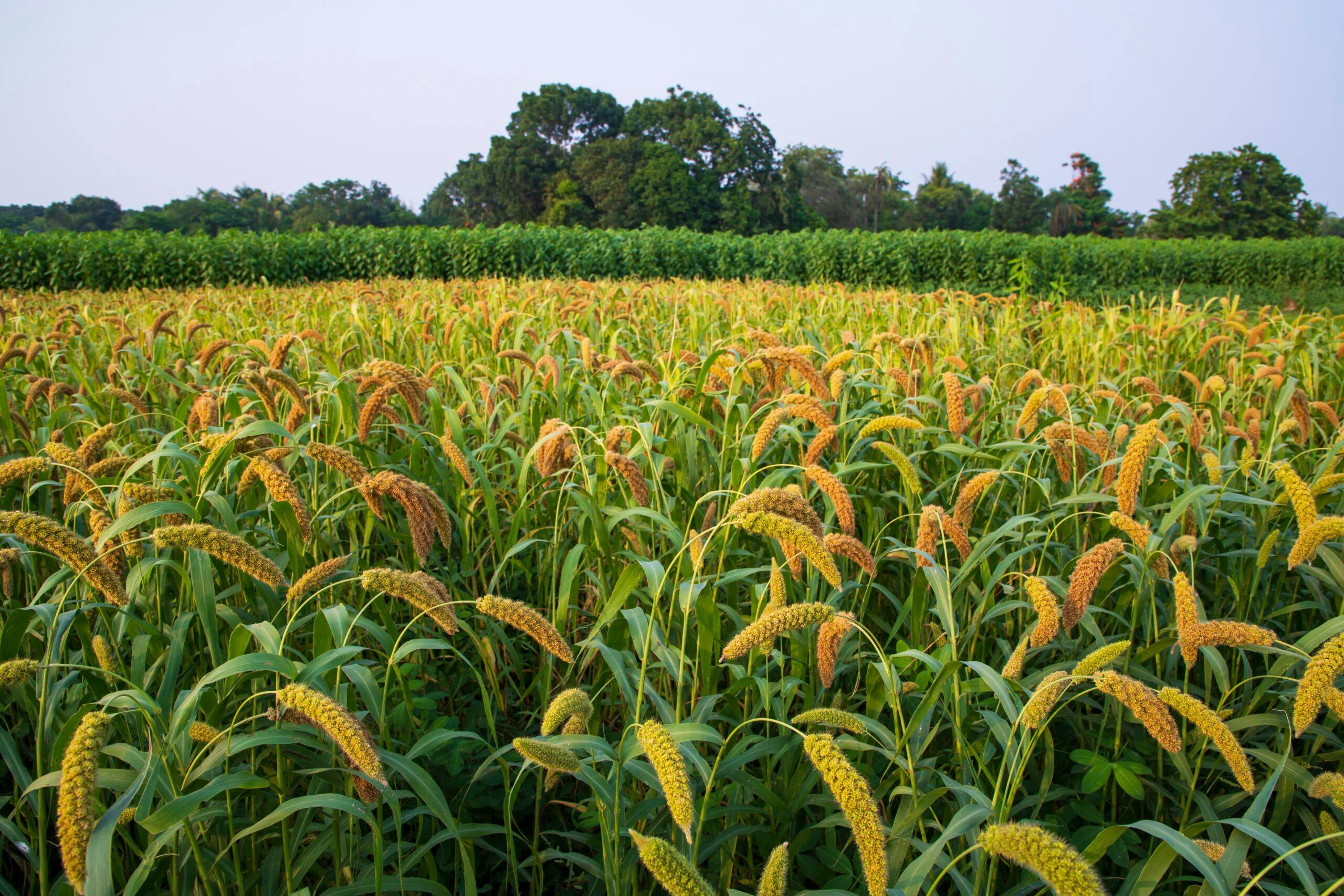
Impact Report: Two Years of Progress
A story of collective action, meaningful partnerships, and measurable change.

